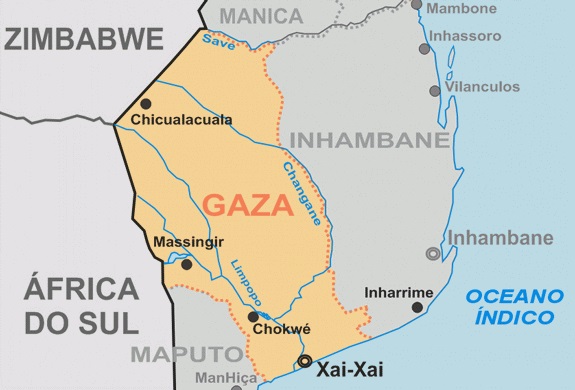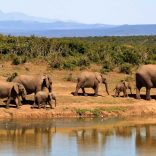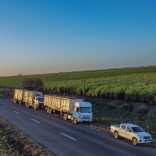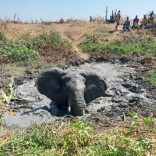Maputo National Park hands over 20% of 2024 revenue to communities in buffer zone
Gaza province: Human-wildlife conflict killed at least 22 people since 2018

Map: RM
At least 22 people have lost their lives since 2018 after being attacked by wild animals in the southern Mozambican province of Gaza.
Wild animals, mainly elephants, also destroyed 551 hectares of various crops.
These are the figures released few days ago by the spokesperson for the XIV Session of Gaza Provincial Council, Almeida Guilume. He added that at least two people died this year and 214 hectares of crops have been destroyed.
“Over 50 incidents were reported in the districts of Massingir, MandlaKazi, Mabalane, Mapai, Chicualacuala and Massangena”, the spokesperson said, quoted by the daily paper “Notícias”.
According to Guilume, most of the incidents occur near water sources, rivers and lakes, when people go to collect water and grazing areas, worsened by climate change.
“The increasing number of forest operators, farming, informal settlements and poaching are the main cause for the increasing numbers of incidents”, he explained.
Meanwhile, Guilume pointed out that there under way a number of initiatives to prevent human-wildlife conflicts such as electric fencing to isolate wildlife areas and the communities in the district of Macuacua and Mandlakazi.
“The government is working to reduce the number of incidents in the northern districts of Gaza province, with the implementation of income generation programs to benefit local communities, namely the “Kheta” and the SUSTENTA Projects which seek to encourage young people to stop poaching and embrace farming”, he explained.
In addition to income generating projects, he said, communities are receiving training on mitigation by using non-lethal means, through environmental initiatives in schools and communities, which teach best practices for a peaceful human-wildelife coexistence.
“Among other challenges, we need to improve land management planning, define clearly areas for housing, grazing, farming and biodiversity conservation. These mechanisms will surely help us reduce the human/wildlife conflict”, he added.’













Leave a Reply
Be the First to Comment!
You must be logged in to post a comment.
You must be logged in to post a comment.